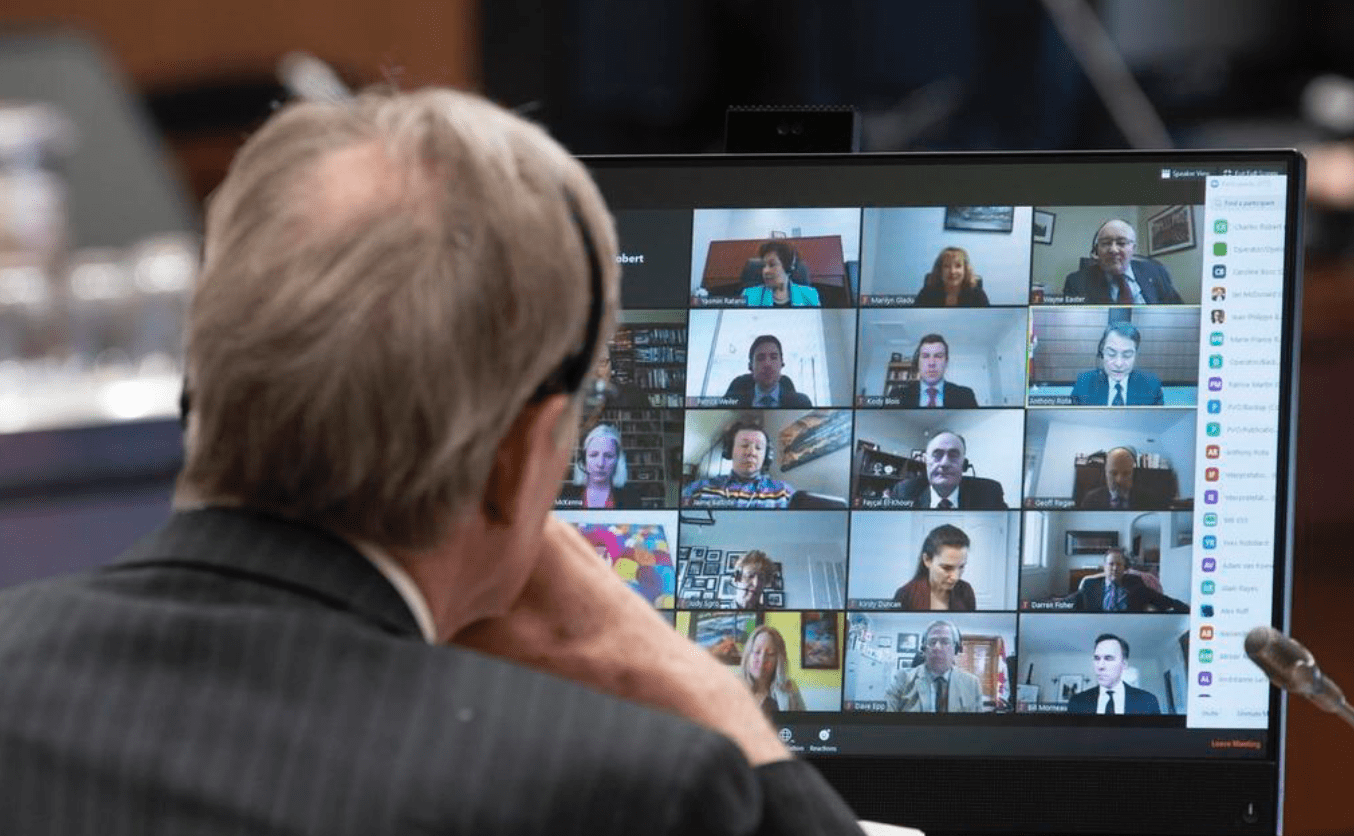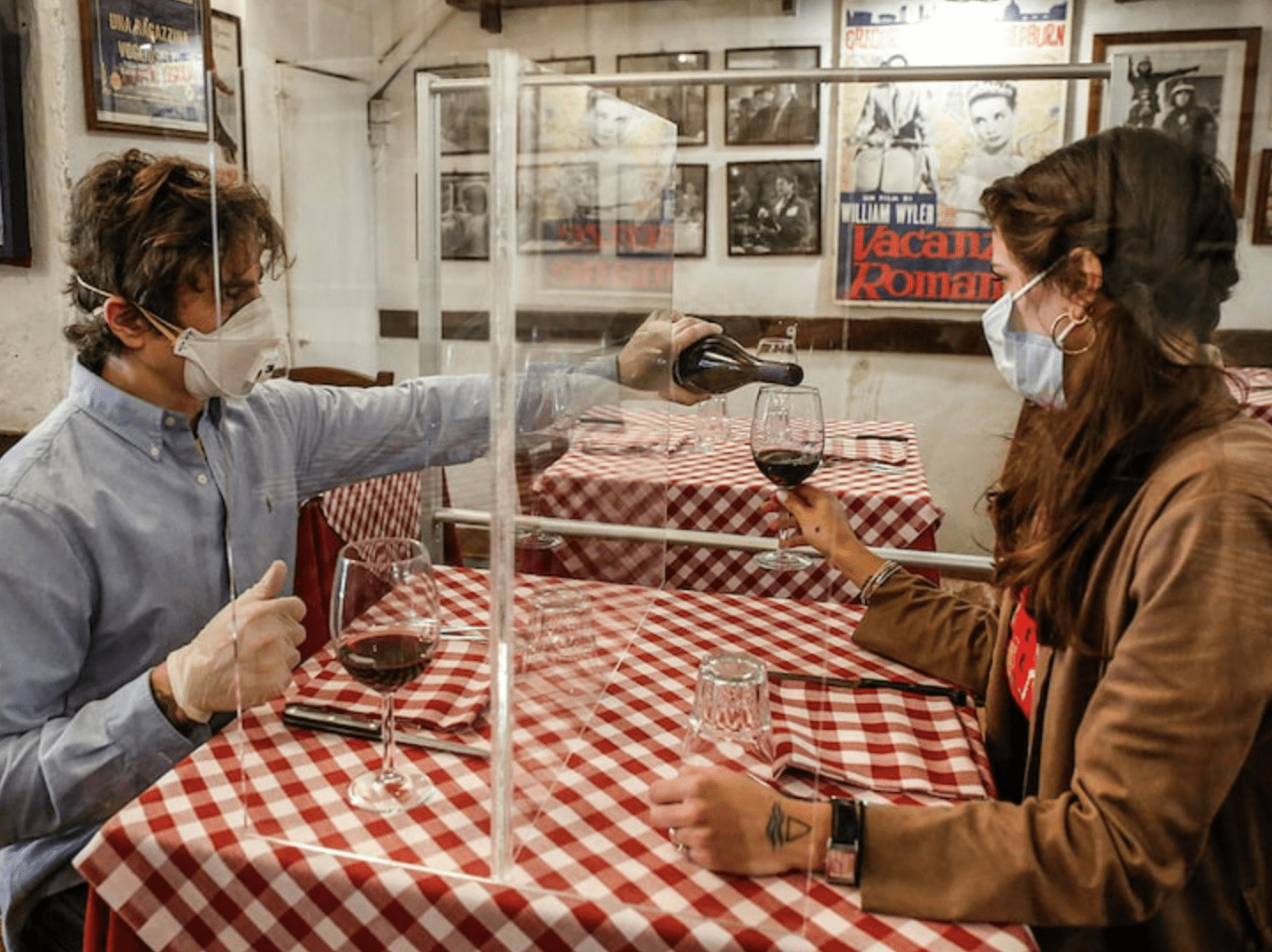On Friday, the Procedure and House Affairs Committee tabled its report on how to conduct parliamentary business in the course of a global pandemic, and much of it was about what you'd expect from a parliamentary committee some general agreement that Parliament is vital and that pandemics are bad, but the extent to which the House of Commons should start moving its deliberations to a virtual space was more contentious as it should be. Nevertheless, the majority opinion of the report, that the Commons move to more virtual proceedings for regular business and to explore a means of electronic voting over distances, should be alarming because it signals the death knell of our parliament, which MPs appear to be blind to.
Much of the report goes into some of the legal, procedural, and technological limitations that the current House and its supporting infrastructure face in attempting to make this move, but largely fails to examine any of the options when it comes to in-person ways of meeting and achieving the same goals. The most they deal with it is to quote professor Emmett Macfarlane in saying that "a skeletal parliament is not a substitute for the breadth and depth of debate and deliberation, question posing, and responsibility to vote on bills and motions by all of our elected representatives." There was no exploration of ways in which the Chamber could better accommodate distancing measures, or how MPs could stay in Ottawa for longer periods to avoid travel (which they cited as ongoing concerns for in-person sittings), of any number of other ways in which risks could be mitigated. Instead, they had a goal of proposing virtual sittings, and the majority wrote toward that end.
To an extent, the report did expose some of the fictions that the government has been peddling when it comes to the "necessity" of having virtual meetings as opposed to in-person ones for the sake of parliamentary staff. In fact, the report states that the number of support staff required for virtual meetings is double that of in-person meetings and these staff must be present in the West Block for these virtual meetings and cannot be done remotely and that it still requires 55 staff whether the Commons sits at full or reduced capacity. The stated concern in the recommendations that "the health and safety of all individuals working within the parliamentary precinct and those working remotely be a priority" seems a bit rich when it is only the health of MPs that are being privileged at the expense of the health of the interpretation staff in particular, and more to the point, the practice of our democracy.
Many of the recommendations continue to treat Parliament as a technological problem to be solved, with talk of ensuring that rural and remote MPs be compensated if they need to travel to get a stable connection to attend virtual meetings, or the cyber-security challenges that this move to virtual presents. The overriding sense of the recommendations was to continue to expand the Commons' "capacity and operations to achieve a fully virtual Parliament, with the possibility of employing a hybrid model in the interim, in the event of exceptional circumstances." This includes electronic means of signalling points of order, determining speaking orders, and to set up a "secure electronic voting system."
This particular recommendation around voting should send up a tonne of red flags because this is something that the Liberals have been pushing for years, but haven't been successful to date, because enough hardliners have engaged in necessary procedural tactics to force the government to back down. The current pandemic situation now gives them the excuses they need to institute this system that they can then use once the pandemic is over. One of the witnesses, professor Cristine de Clercy, warned that "the pandemic should not serve as an accidental gateway to a permanent method of virtual assembly that is not well understood and carries large democratic implications for Canada," but I fear that there is very little "accidental" about it.
The recommendation reads "That the House of Commons set up a secure electronic voting system for conducting votes in virtual sittings as soon as possible in order to guarantee the right of members to vote safely in the event of a pandemic or any other exceptional circumstances threatening their safety and/or that of their families and communities." It's that last bit that concerns me the most, because it was not long ago that the Liberals in particular were using the excuse of being "family friendly" to try and set up this same kind of electronic voting system. This is coupled with the recommendation that "the Committee undertake a follow-up study on lessons learned from implementing a virtual Parliament to consider improvements and modernizations that can be implemented, including Question Period and voting," which is a clear signal that there is an intention to make some of these changes permanently.
The Conservatives did have a dissenting opinion to the report, which ultimately stated that "The Official Opposition will strongly resist any effort to exploit the pandemic as a cover to implement a permanent virtual Parliament, with its reduced ability to hold a government accountable, gravely undermining our democracy." And while they made a number of excellent points in their dissent, it was ultimately undermined by the insistence on a cartoonish portrayal of the current prime minister as someone who avoids the House and accountability at every chance something not born out by the facts, or by the record of Stephen Harper's government.
I do fear that the fix is in when it comes to a "virtual" parliament, and that we are likely to start seeing some kind of "hybrid" sittings within weeks, because there has been such lacklustre pushback against this notion on the committee. The committee reviews of the virtual COVID-19 committee meetings were nothing short of glowing (even when they're not), and the only thought to the future was to ensure a proper pandemic plan going forward. But there are more existential concerns about the nature of Parliament and the social contagion that the goal of making these changes permanent would have and there is a stated goal of permanence and that should be at the forefront of MPs' minds. It's not, and we will all pay the price for it.
Photo Credit: CBC News








